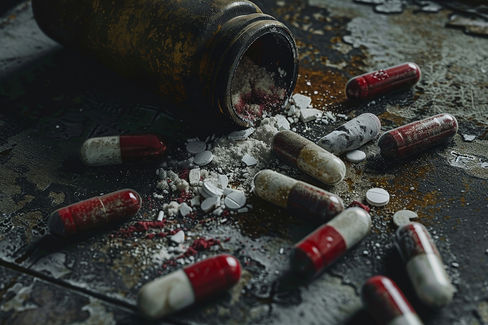top of page

ECOSOC
The United Nations Economic and Social Council (ECOSOC) plays a key role in the formulation of policies that support global economic and social development. This session will address topics such as the transformation of labor markets driven by artificial intelligence, unemployment, automation of professions, and digital inequality. Delegates will present policy proposals aligned with technological advancements to promote sustainable economic growth and ensure social justice.
DISEC
The First Committee on Disarmament and International Security (DISEC) focuses on issues of global security and disarmament. In this session, discussions will center on the ethical boundaries of modern warfare and the role of emerging technologies—such as unmanned aerial vehicles (drones), cyber warfare, and chemical and biological weapons—within the framework of international humanitarian law. Delegates will engage in solution-oriented negotiations on matters such as updating the laws of war and ensuring the protection of civilians.


SOCHUM
The Social, Humanitarian and Cultural Committee (SOCHUM) is responsible for the protection of human rights and the promotion of international cooperation on cultural issues. This session will address the enduring impact of racism, discrimination, and colonialism from past to present. Delegates will discuss policy measures aimed at combating contemporary structural racism and redressing the injustices rooted in colonial history.
UNDRR
The United Nations Office for Disaster Risk Reduction (UNDRR) aims to reduce risks arising from both natural and human-induced disasters. This session will examine the impact of increasingly frequent disasters—such as earthquakes, floods, and droughts—exacerbated by climate change on global economies and communities. Delegates will develop solution-oriented proposals focusing on resilient infrastructure development, early warning systems, and enhanced international cooperation during crisis situations.


UNODC-UNSC
In cooperation with the United Nations Office on Drugs and Crime (UNODC) and the Security Council (UNSC), this committee addresses the violence instigated by drug cartels in Latin America and the international networks of these criminal organizations. Delegates will propose comprehensive strategies aimed at preventing both regional instability and transnational drug trafficking, with a focus on ensuring security, justice, and sustainable development.
FAO
The Food and Agriculture Organization (FAO) of the United Nations works to combat hunger and promote agricultural sustainability. This session will examine the impacts of wars, climate change, economic crises, and supply chain disruptions on food security. Delegates will explore solutions to address global hunger, implement sustainable agricultural practices, and develop equitable food distribution systems.


WHO
The World Health Organization (WHO) aims to elevate global health standards and promote universal access to healthcare services. This session will address disparities in healthcare between developed and developing countries, vaccine distribution challenges, shortages of healthcare workers, and barriers to accessing essential medical services. Delegates will work on formulating international policies that advance equity in healthcare.

HJCC
JAPAN-RUSSIAN WAR
A crisis committee is a simulation model designed to test delegates’ ability to make rapid decisions in response to dynamic and unpredictable scenarios. Characterized by a high-paced and real-time negotiation environment, this format typically does not disclose its agenda in advance; instead, developments are presented to participants unexpectedly, requiring immediate and strategic diplomatic responses. Delegates are expected to intervene effectively in international crises, demonstrate diplomatic reflexes, and apply global crisis management competencies in a practical setting. In this context, the crisis committee serves as a unique academic platform that facilitates the observation and analysis of both individual and collective decision-making processes.

bottom of page
